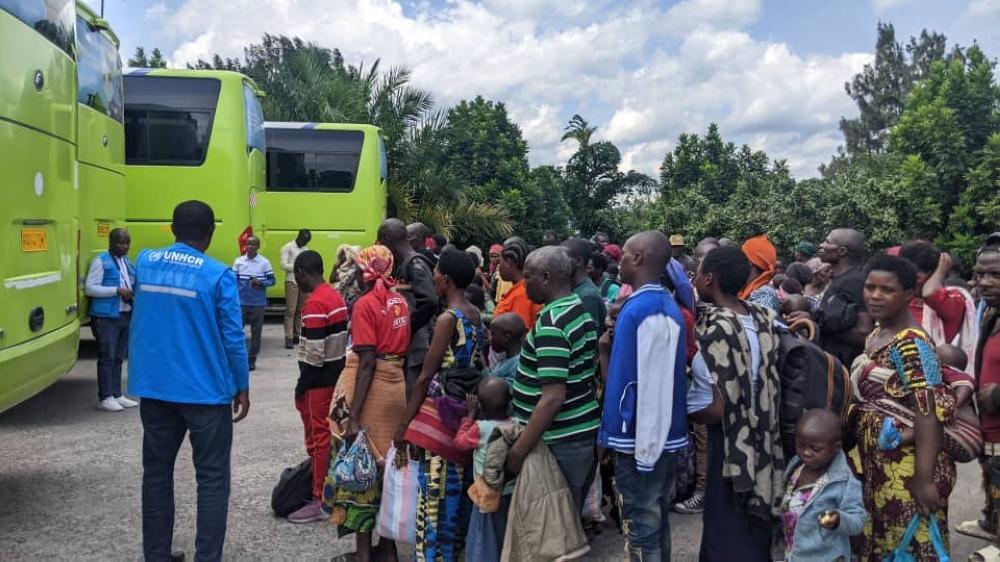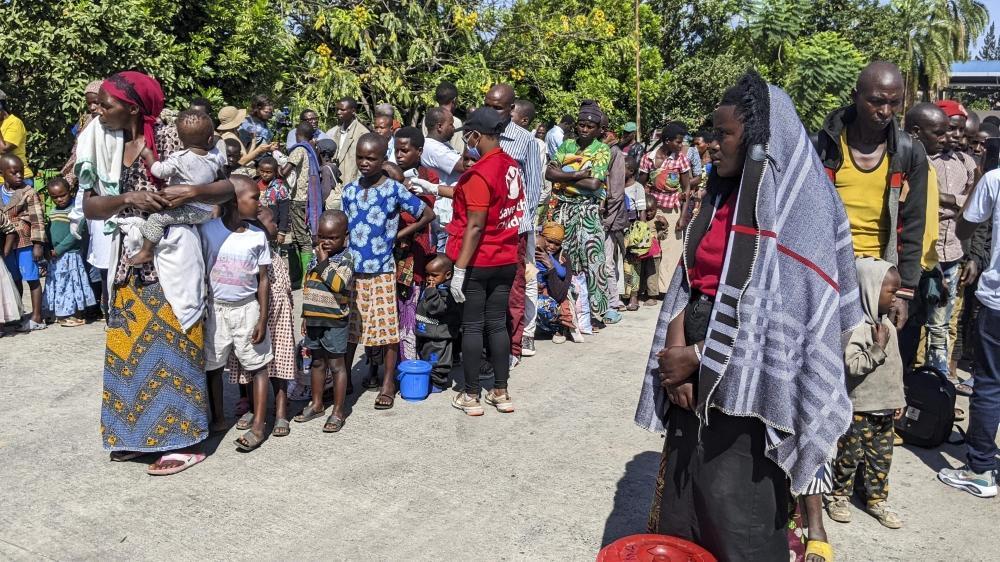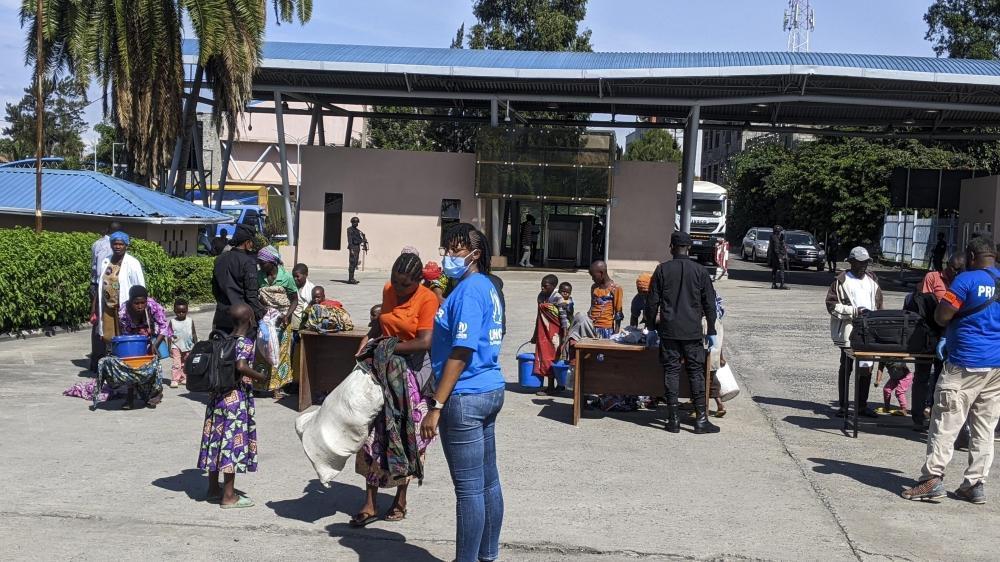Africa-Press – Rwanda. Rwandans who returned from DR Congo recently said they were excited about the country’s safety and development after enduring life-threatening conditions in the neighboring county for decades.
Since Saturday, May 17, Rwandan officials and the UN Refugee Agency received more than 1,100 Rwandans who had been held hostage by the eastern DR Congo-based FDLR militia for more than 30 years.
The latest group of 796 returnees, mostly women and children, crossed the Grand Barrière border post in Rubavu District on Monday, joining an initial 360 returnees who arrived on Saturday. They are hosted at Kijote Transit Camp in Nyabihu District, and at Nyarushishi Transit Camp in Rusizi District for a two-week stay before they are reintegrated into the society.
Official reports indicate that their return is part of the repatriation effort for some 2,500 Rwandans held by the FDLR, a group founded by remnants of perpetrators of the 1994 Genocide against the Tutsi.
A total of 796 Rwandans returning from eastern DR Congo, where they had been held hostage by the FDLR, arrive at Rwanda DR Congo border on Monday, May 19. Photos by Gemain Nsanzimana
The Ministry of Emergency Management said some 4,000 Rwandans have returned from DR Congo since January this year, joining another 3.5 million repatriated since 1994.
Esperance Uwimana and Theogene Ntibarora, are among the returnees who praised the country’s development and good readership upon their arrival in their home country.
“We could not imagine that we would arrive here safely, what we have seen is a different story,” narrated an emotional Ntibarora.
“We left the country long ago, but we have come back again witnessing the country’s development and safety which we are proud of.”
Uwimana reflected on life in conflict-ridden DR Congo, where more than 200 armed groups roam freely.
The second group of Rwandans from DR Congo forests arrives in Rwanda on Monday, May 19
“Back in Congo, we could not sleep because of wars and fighting. But thanks to the good leadership of this country, we are finally back home,” she said.
Marie Jeanne Furaha, a 25-year-old mother of one, also expressed her joy after crossing into Rwanda as a home country.
“I feel much safer living in Rwanda than in Congo because my parents are Rwandans,” said Furaha after crossing the border.
“I’m not scared anymore; I feel safe now knowing that I’m going to meet and stay with my family and relatives.
The Minister of Emergency Management, Maj Gen (Rtd) Albert Murasira, who welcomed the returnees, said they will get all necessary support to facilitate their reintegration into the community.
“You’re going to get documents, and you will be able to travel in Congo or other countries if you want, but as a Rwandan, not as refugees,” he told the returned who are hosted at Kijote Transit Camp on Monday.
“All the problems you have now will be addressed but you should take part and contribute to the country’s development.”
Murasira said that Rwanda had embarked on a journey of national unity and the safety of every citizen.
“Feel at home, and forget about the perception that Rwanda is not safe,” he said. “We even welcome members of the FDLR and those who committed genocide crimes are held accountable,” Murasira said.
“There is no longer any divisionism in Rwanda, far from what you have heard back in DR Congo.”
For More News And Analysis About Rwanda Follow Africa-Press








